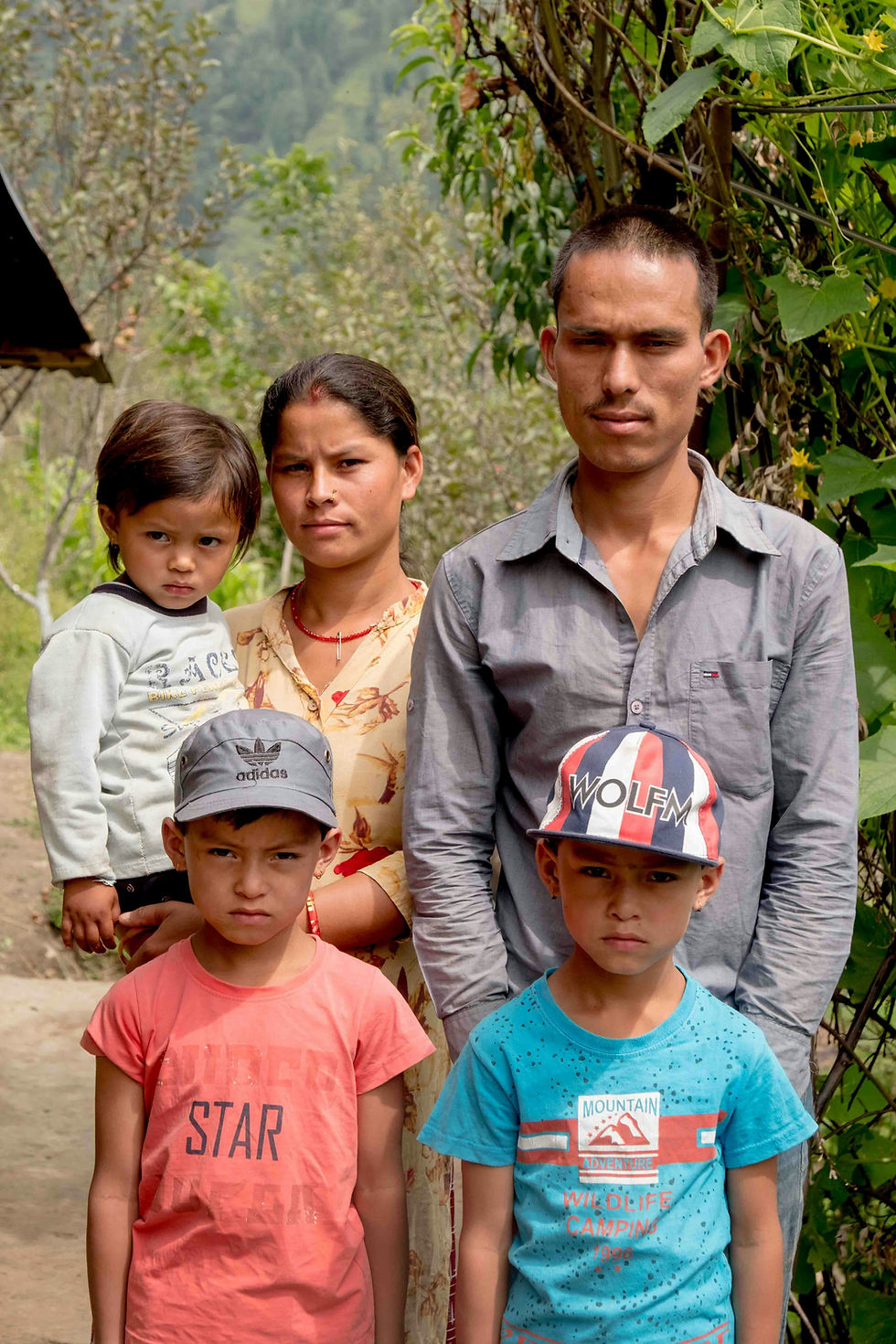Congress Can Stop The Trump Administration’s Assault On Children
- National Prevention Science Coalition

- Jun 10, 2025
- 4 min read
Updated: Jun 11, 2025
June 10, 2025
By Charles Bruner and Diana Fishbein
This opinion piece was originally published in Health Affairs and can be found at: https://www.healthaffairs.org/content/forefront/congress-can-stop-trump-administration-s-assault-children
The article reads:
"Children and their well-being are under attack. Despite rhetoric to the contrary, President Donald Trump, his cabinet, and his Department of Government Efficiency (DOGE) are taking blunt actions, advancing aggressive executive orders, and elevating reckless proposals to restructure the federal budget—all of which are likely to leave children and their families as this administration’s greatest casualties.
And so, Congress must respond. Through oversight and budget actions, it can defend the people, programs, services, and grants that are under attack.
After all, virtually all the policies our nation has created to support children and families were enacted with bipartisan congressional action under both Republican and Democratic administrations. Now, Congress can demonstrate its longstanding commitment to children by using its oversight authority to ensure transparency The public deserves to know the impact of these policies. And Congress has an obligation to make this information available and to protect and support our children.
Cuts Have Costs
By registering, I accept the privacy policy.
DOGE has already taken sweeping action to suspend and curtail a wide array of federal programs and services needed to ensure children’s health, development, and well-being. The indiscriminate removal of experienced and dedicated public servants as a part of this onslaught has been wasteful at best—in stark contrast with the stated goal of improving efficiency and ensuring effectiveness.
Of the billions of dollars in federal grants being cut, many are specifically designed to tackle important challenges facing children and families today. They include research on childhood cancer, support for youth with disabilities transitioning from high school to college, school mental health grants to states, and efforts to reduce maternal and infant deaths in places and populations where rates are high. Also affected are public health programs for community health workers to ensure children receive health services that support their development or protect them against preventable diseases.
The termination or reassignment of 20,000 workers in the Department of Health and Human Services includes the entire regional office of the Maternal and Child Health Bureau (MCHB). This office administers the oldest block grant to states and is core to comprehensive approaches to ensuring all children get a healthy start in life. The loss of hundreds, if not thousands, of years of experience and skills from these actions is incalculable.
In the National Institutes of Health, the directors of the National Institute of Child Health and Human Development, the National Institute on Minority Health and Health Disparities, the National Institute of Nursing Research, and the National Institute of Allergies and Infectious Diseases, all with substantial portfolios directed to children’s health, were reportedly “reassigned” to western offices of the Indian Health Services (not where their expertise lies but a means of forcing their resignation). Similar terminations of senior staff with major child health responsibilities have been made in the Centers for Disease Control and Prevention (CDC) and the Health Resources and Services Administration, of which MCHB is a major part.
The proposed elimination of the Department of Education and severe staffing cuts would also cause other major disruptions, particularly to children with disabilities and to schools in poor neighborhoods (where a major share of federal education funding goes, through the Individuals with Disabilities Education Act [IDEA] and Title I).
Government cannot be efficient or effective without competent and experienced staff. Most members of Congress—of both parties—have relied upon information provided by trusted and nonpartisan agency staff who now have been terminated. Congress must play a role through its oversight capacities to bring to light the enormity of the loss, including hard questions of the executive branch officials responsible.
Congressional oversight also is needed to examine the impact on children of the president’s executive order on diversity, equity, and inclusion (DEI). Because children are the most racially and ethnically diverse age group in society, the most likely to be poor and vulnerable, the most affected by adversity, and subject to some of the greatest disparities by race and socioeconomic status, DEI investments that are now targeted for elimination include many programs that work to improve children’s health, development, and lifelong well-being—purportedly, a primary goal of President Trump’s “Make American Healthy Again” executive order.
Budget Actions
It is through budget actions, however, that Congress executes its most weighty obligation. President Trump’s budget request was released last month, calling to eliminate a variety of programs that benefit children and for cutting the CDC by nearly one-half. And as damaging as those cuts will be, even greater pain would come from the reduction in major federal commitments to children found within the president’s call for “one big beautiful bill”—the so-called Budget Reconciliation package—which would cut $715 billion from Medicaid. The package was recently passed by the House and is now under consideration by the Senate. The bill would also roll back important Affordable Care Act premium tax credits for families and impose significant reductions in support for child nutrition (through the Supplemental Nutrition Assistance Program (SNAP); Women, Infants and Children (WIC) program; and school programs) with devastating impacts on millions of children and their families.
These actions must not remain hidden behind talk of “government efficiency.” Congress must closely examine their impact on kids.
Voters want government to do more, not less, to support children’s health, education, and safety. Actions proposed and those already taken by the Trump administration would set us back decades, negating long-held bipartisan commitments to children. Congress must make children a concerted focus of its oversight and budgeting efforts."




Comments